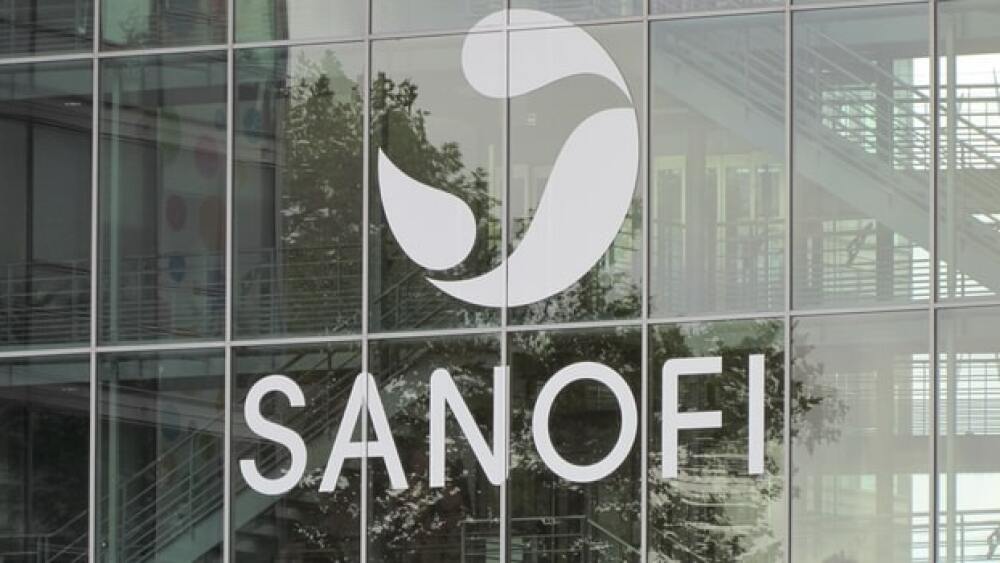Under the terms of the deal, Sanofi is paying Amunix $1 billion up front and up to $225 million in various development milestone payments.
Keitma/Shutterstock
Paris-based Sanofi is buying South San Francisco’s Amunix Pharmaceuticals in a deal topping $1.225 billion.
Amunix focuses on immuno-oncology with a proprietary XEN and universal protease-releasable masking technology platform, Pro-XTEN. The tech allows the company to discover and develop transformative T-cell engagers (TCE) and cytokine therapies for cancer patients.
Under the terms of the deal, Sanofi is paying Amunix $1 billion up front and up to $225 million in various development milestone payments.
Amunix’s lead program is AMX-818, a masked HER2-directed TCE. In April, the company presented preclinical data on AMX-818 at the AACR Annual Meeting. The data showed that the drug targeted HER2 expressing tumors was preferentially activated in the protease-rich tumor microenvironment, demonstrating significant tumor regression in HER2 tumor models and in non-human primates.
“These data demonstrate the potential of our Pro-XTEN protease-releasable masking technology applied to our XPAT platform that expands the utility and safety profile of T cell engagers,” said Angie You, Chief Executive Officer of Amunix. “Notably, we observed substantial tumor regression with AMX-818 treatment in both HER2 high and HER2 low expressing tumors, with the latter being an area of significant unmet need with no approved HER2 therapies. We are progressing this program towards the clinic and look forward to bringing the potential of this drug to patients, in particular to those with tumor types where cancer immunotherapies have failed to date.”
The company’s next-generation approach to immuno-oncology, according to Sanofi, “allows biologics to circulate in ‘stealth’ mode, becoming active preferentially in disease specific micro-environments.” They attach “masks” to the drugs using protease-cleavable linkers. The design is for the drugs to be harmless while moving throughout the body until they hit specific tumor microenvironments, then the cancer-killing power of the drug is unleashed. They’re also designed to have a long half-life until they’re activated, but they are rapidly cleared from the body after killing the cancer cells.
“This acquisition demonstrates our ongoing commitment to investing in promising research and discovery platforms,” said Dr. John Reed, Global Head of Research & Development, Sanofi. “The Amunix technology platform utilizes a next generation smart biologics approach to precisely tailor-deliver medicines to become active only in tumor tissues while sparing normal tissues, thus bringing the promise of more effective and safer treatment options for cancer patients. We are excited to rapidly advance Amunix’s promising pipeline and to combine their innovative candidate medicines with complementary molecules in Sanofi’s immuno-oncology portfolio.”
Amunix and Sanofi have had a relationship for about five years. Amunix had licensed its half-life extension technology to Biogen for hemophilia in 2014, just before Biogen spun out its hemophilia unit into Bioverative. Bioverative developed a longer-lasting Factor VIII replacement, BIVV001 (efanesoctocog alfa) using the technology. Then Sanofi acquired Bioverative in 2018.
In March, Amunix raised $117 million in a Series B financing round, which was led by Viking Global Investors with participation from new investors Bain Capital Life Sciences, BlackRock, Franklin Templeton, Janus Henderson Investors, ArrowMark Partners, Avidity Partners, funds managed by Clough Capital Partners, and CaaS Capital Management. Existing investors who participated included Redmile Group, Venrock, Casdin Capital, Omega Funds, Frazier Healthcare Partners, Longitude Capital, and Polaris Partners.
The funds raised were used to advance AMX-818 toward the clinic and to support its pipeline of other XPATs and masked, protease-activated cytokines (XPACs).





